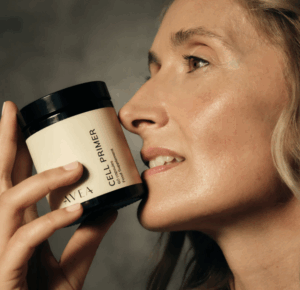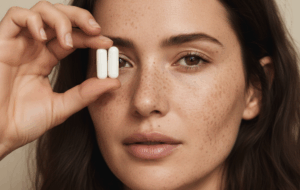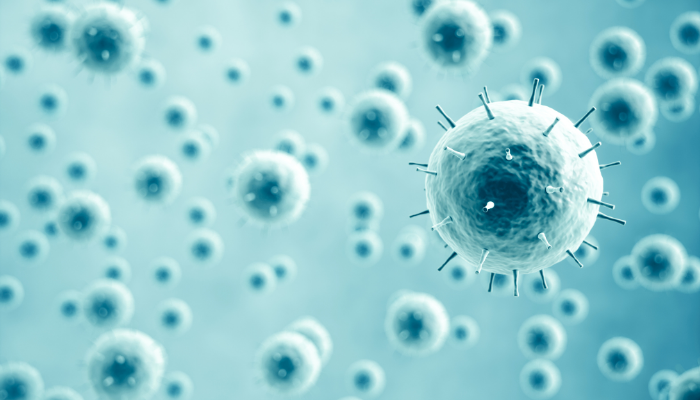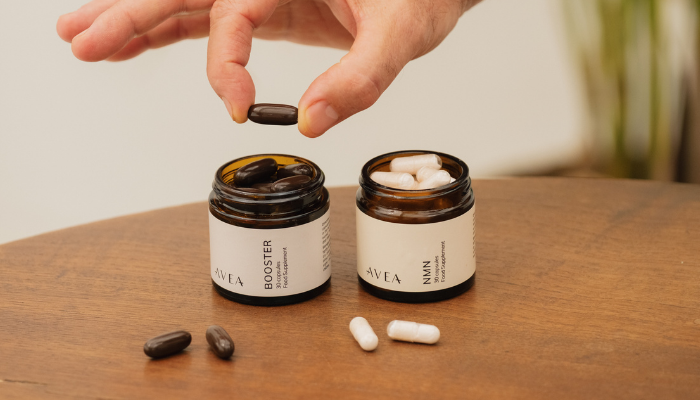Avea had the chance to chat with Farwa Fayyaz, an accomplished pharmaceutical expert and co-author of the paper An Overview of Anti-inflammatory, Antioxidant, Anti-cancer, Anti-hyperlipidaemic, Neuroprotective and Muscle Relaxant Effects.
Farwa’s extensive research into Apigenin highlights why this natural compound is more than just a remedy for illnesses—it’s a must for healthy ageing and longevity.
Drawing on her expertise, Farwa shared her thoughts on why Apigenin deserves a place in your daily routine. Here’s what we learned.
Q1. What sparked your interest in researching Apigenin and its biological effects?
“Nature has always been our greatest pharmacy. For centuries, our ancestors relied on plants and natural compounds to treat ailments and support longevity. In today’s world of synthetic medicines, I believe it’s important to revisit these natural remedies, as they can offer solutions we’ve overlooked.
“Apigenin caught my attention because it’s found in everyday foods like chamomile, parsley, and oranges, and it has minimal toxicity. Its broad spectrum of biological activities—from anti-inflammatory to neuroprotective effects—piqued my curiosity. Its ability to address multiple health concerns makes it an exciting area of study.”
Q2. Were there any surprising findings during your research on Apigenin?
“One of the most surprising discoveries was how Apigenin’s effects are amplified when combined with other compounds. For example, when paired with Resveratrol, it showed significantly enhanced anti-inflammatory and anti-cancer properties.
While I expected Apigenin to be effective, the synergistic outcomes were beyond what I anticipated, especially in areas like oncology and inflammation.”
Q3. What are the most promising applications of Apigenin?
“Apigenin has shown great potential in several areas, particularly in neurodegenerative diseases such as Alzheimer’s. Its neuroprotective and anti-inflammatory properties help protect neurons, enhance cognitive function, and reduce oxidative stress. This makes it a powerful candidate for addressing cognitive decline and promoting brain health.
“It’s also highly promising in oncology, especially for cancers linked to inflammation, like breast, prostate, and pancreatic cancers. Apigenin works both as a chemo-sensitiser—making chemotherapy more effective—and as a direct anti-cancer agent.
“Another interesting area is skincare. Apigenin’s antioxidant and anti-inflammatory properties help reduce skin inflammation. For example, topical liposomal formulations of Apigenin have shown dose-dependent reductions in skin inflammation, making it valuable for treating inflammatory skin conditions.”
Q4. Can Apigenin be combined with traditional treatments?
“Absolutely. In oncology, combining Apigenin with traditional therapies has shown great promise. It can enhance the effectiveness of chemotherapy drugs like etoposide while reducing side effects.
“Apigenin also works synergistically with alkylating agents like cyclophosphamide, helping combat cancer by inducing apoptosis (cell death) and reducing drug resistance in leukaemia cells. These findings highlight how Apigenin can complement conventional treatments, offering better outcomes with reduced toxicity.”

As research continues to unfold, Apigenin is likely to emerge as a cornerstone in natural medicine and therapeutic innovation.

Q5. How does Apigenin fit into the bigger picture of longevity research?
“In the longevity space, Apigenin’s ability to reduce inflammation and oxidative stress—two key drivers of ageing—positions it as a powerful natural compound for promoting healthy ageing.
Its neuroprotective effects can help maintain cognitive function, while its anti-inflammatory properties support metabolic health, potentially reducing the risk of chronic diseases like diabetes and cardiovascular issues.
“Apigenin also plays a role in protecting skin health, which is an important aspect of overall wellbeing. By strengthening the skin’s physical and chemical barriers, it helps combat the visible and underlying signs of ageing.”
Q6. Given its benefits, do you think Apigenin is suitable as a dietary supplement for general health?
“Definitely. Apigenin’s natural occurrence in food and its excellent safety profile make it an ideal supplement.
Regular intake has demonstrated neuroprotective effects, including reducing oxidative stress, preventing neuronal damage, and even enhancing memory in animal models of Alzheimer’s. Its anti-inflammatory and antioxidant properties also suggest it can be part of an effective anti-ageing regimen.
“Unlike anti-epileptic drugs, which often have side effects like memory impairment, Apigenin offers a safer profile. It even shows potential for addressing epilepsy-related cognitive issues, although more research is needed in this area.
As a supplement, Apigenin is not just about treating disease—it’s about supporting long-term health and resilience.”
Q7. Do you incorporate Apigenin into your own lifestyle?
”Growing up in Pakistan, I was fortunate to have a diet naturally rich in Apigenin through foods like parsley, celery, oranges, basil, spinach, and chamomile. These ingredients were staples in our traditional cooking, as well as herbal teas that my grandmother used to prepare.
Today, I value the scientifically proven benefits of Apigenin—its anti-inflammatory, antioxidant, and anti-cancer properties—while appreciating the connection it gives me to my heritage.
For those considering supplements, I recommend looking for formulations designed to improve bioavailability, such as those included in longevity-focused products like Avea’s Vitality Bundle.’’
Q8. Do you think there’s a need for more education on natural compounds like Apigenin?
“Yes, absolutely. Apigenin has been used in traditional remedies for centuries, but many people are unaware of its scientifically proven benefits. It’s a natural, non-toxic compound with a wide range of therapeutic effects, yet it remains underappreciated in modern health conversations.
“By raising awareness and educating the public about Apigenin’s potential, we can empower more people to make informed choices about incorporating this natural compound into their daily lives. It’s not just about treating illness—it’s about proactively investing in longevity and overall wellbeing.”












